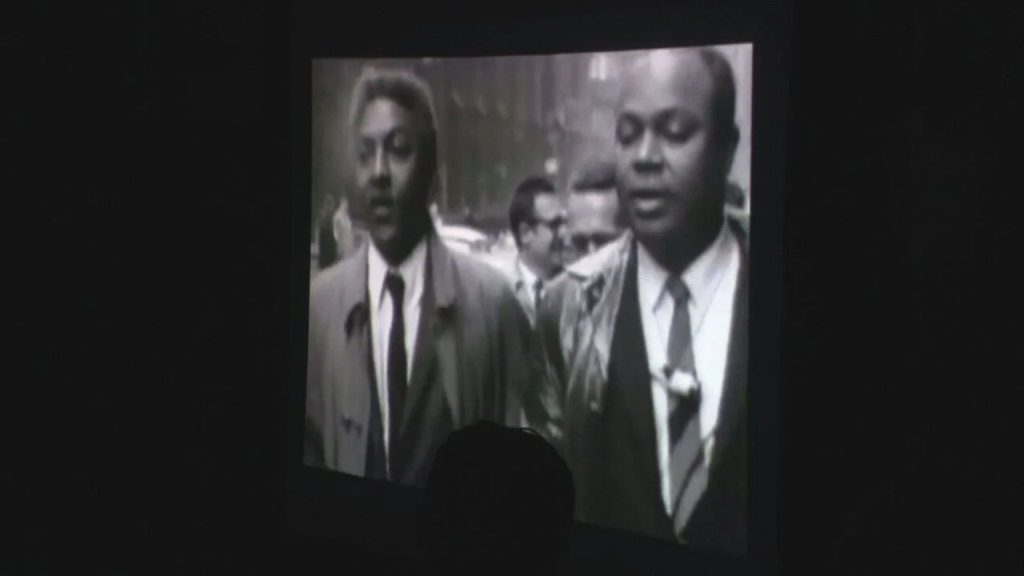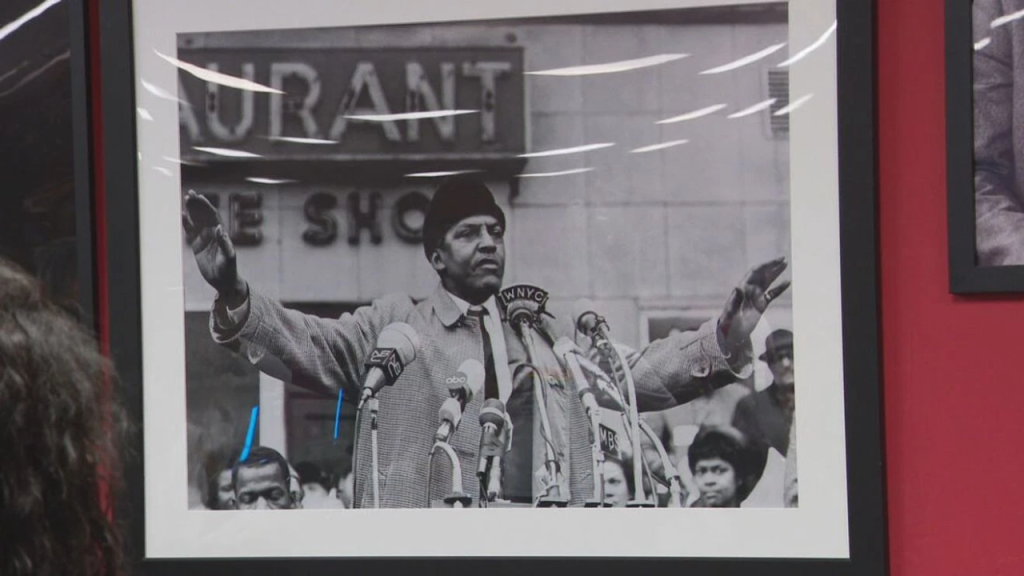
In a historic and emotional tribute, Union Temple Baptist Church in Southeast D.C. unveiled a striking portrait of Bayard Rustin, the openly gay civil rights strategist behind the 1963 March on Washington. The unveiling took place on June 1, marking the start of Pride Month, and honored a man whose contributions to social justice had long been overlooked due to his sexuality.
The portrait now hangs in the church’s Hall of History, a space dedicated to honoring those who shaped the fight for justice and equality. The event was organized in collaboration with Pride in the Pews, a national Black church LGBTQ+ inclusion group, and Agape, Union Temple’s own LGBTQ+ ministry.
Rev. Willie Wilson, pastor emeritus of Union Temple, spoke of the significance of celebrating Rustin’s life and activism. “He was a bridge between civil rights and human rights, and it’s time we honor all parts of who he was,” Wilson said.
A Strategist Behind the Dream
Bayard Rustin was a close advisor to Dr. Martin Luther King Jr. and played a key role in introducing King to nonviolent resistance. Rustin was the chief organizer of the 1963 March on Washington for Jobs and Freedom, where King delivered his iconic “I Have a Dream” speech on the steps of the Lincoln Memorial.
Despite Rustin’s enormous contributions, his identity as a gay man caused him to be sidelined within the civil rights movement. Leaders often chose to keep Rustin in the background to avoid controversy. In a time when homosexuality was both criminalized and deeply stigmatized, Rustin’s sexuality was seen as a political liability—even by some of his closest allies.
Still, Rustin never stopped fighting. He advocated fiercely for labor rights, economic justice, racial equality, and in his later years, LGBTQ+ rights. He believed deeply that all struggles for freedom were interconnected.
A Church’s Bold Statement
Union Temple Baptist Church has long been known for its progressive stance on social issues. Hosting this portrait unveiling during Pride Month sent a strong message of inclusion and acceptance. The church welcomed guests from across the city, including LGBTQ+ faith leaders, activists, and members of Rustin’s extended community.
“This is more than art. This is a public affirmation of Bayard’s place in history and in faith,” said Don Abram, founder of Pride in the Pews. “He embodied what it meant to love your neighbor and seek justice for the oppressed, even when the world turned its back on him.”
Many in attendance shared how Rustin’s legacy had inspired their own activism. Photos from the event captured emotional moments, as guests stood before the portrait—some with hands over hearts, others wiping away tears.

Renewed Recognition
In recent years, Bayard Rustin has received a wave of long-overdue recognition. In 2013, President Barack Obama posthumously awarded Rustin the Presidential Medal of Freedom—the nation’s highest civilian honor. More recently, his life was portrayed in the 2023 biographical film Rustin, produced by Barack and Michelle Obama’s Higher Ground Productions, which introduced his story to a wider audience.
The film reignited interest in Rustin’s life, especially among younger activists who draw connections between today’s LGBTQ+ rights movement and the broader struggle for racial justice.
A Symbol for Pride Month
By unveiling this portrait at the start of Pride Month, Union Temple Baptist Church emphasized that Black history, LGBTQ+ history, and faith history are deeply connected. For many Black LGBTQ+ individuals, the church has historically been both a place of solace and of struggle. This event signaled a step toward reconciliation and acknowledgment.
The National Park Service, which oversees many key sites related to the 1963 March on Washington, lists Rustin as a major architect of the event (nps.gov), while the Library of Congress archives Rustin’s speeches, writings, and photographs (loc.gov).
“Rustin helped give voice to a movement. And now, we’re giving voice back to him,” said one attendee, reflecting on the power of representation and truth-telling in sacred spaces.
Bayard Rustin’s portrait now serves not only as a reminder of his role in American history but as a symbol of courage, authenticity, and unity in the face of adversity.
